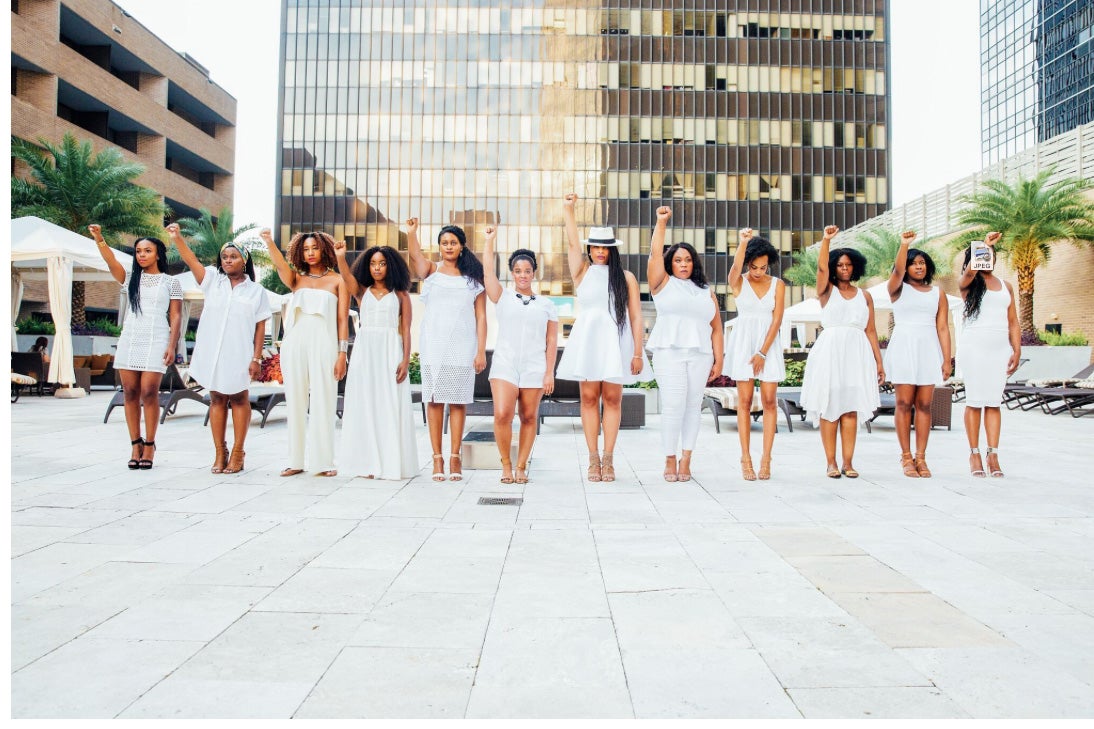
Getting your Trinity Audio player ready…
“Pretty women wonder where my secret lies,” she begins, “I’m not cute or built to suit a fashion model’s size. . . I walk into a room just as cool as you please. . .They try so much but they can’t touch my inner mystery . . .It’s in the arch of my back, the sun of my smile, the ride of my breasts, the grace of my style. I am a woman phenomenally. Phenomenal woman, that’s me.”
Her poem, “Phenomenal Woman” heralds women for four stanzas, each line praising the extraordinary nature of Black women. Interesting, however, is that the entire poem is written from a perspective of admiration outside of physical beauty. I am not suggesting that Black women are not physically beautiful—we are. I am, however, affirming the notion that physical beauty has never been our primary sense of allure, and it has never been enough for us to live and survive by. What gives our beauty substance and depth is our ability, as Angelou depicts to, “walk into a room as cooly [and gracefully] as [we] please” and still manage to smile in the face of adversity and in the midst of mourning. Our beauty lies in our survival– in our unbridled willingness to be the head of the household when our men were beaten to death as slaves; lynched during the Civil Rights Era; didn’t return home from war; were lost to the bias of the penal system or passively murdered in cold blood by forces sworn to protect them; or inversely, slain in the process of patrolling the streets to protect the very people who might incite violence against them. Black women have been culturally conditioned to possess and embody this unfortunate form of beauty that is often groomed solely through loss, blood and tears. We’ve sugared the rim of the proverbial shot glass of life by referring to ourselves as “magic,” but the less fantastic vocabulary to define us would be “resilient”. Were we given the option, Black women—like most women— would bask in the luxury of being soft, of resting and not being constantly consumed by a state of fatigue. Black women would relish not being burdened by the “otherness” of Blackness and the constant questions that come with living in this skin: How can I protect my child? Why am I and my family not viewed as human? Why is living an attribute of white privilege? Why must my existence be seen as “magic?” Is it safer—are my children more likely to survive if I marry White? Will my children survive at all? And, Where is the middle ground? This issue of racial injustice is not a Black and White issue, it is a human issue, of which Black women are usually burdened with bearing the aftermath. As a Black woman, there are aspects of my innocence and the innocence of others like Reynold’s 4-year-old daughter, who witnessed the murder of her (soon-to-be) step-father, that have been robbed from us before they’ve even had a chance to form. Circumstances that have yet to be experienced on a cellular level, like marriage and motherhood, are—in the wake of the ever-growing list of hashtagged names and slain Black bodies—hopeful events in my future that are now accompanied by shadows of doubt and sadness, and at time questions marks, too. I have assumed the characteristics of that involuntary “magic” that is now welling in belly of Reynolds’ 4-year-old daughter who managed to console her mother as Philando Castile died in the car next to her. My personal definition of beauty is enhanced every day by the increasing depth of my learned resilience and the sometimes forced perception of just how phenomenal a woman that I and the women I share this skin with are. While I still consider myself privileged to live in this Black skin, I do wish that circumstance and time were not pivotal in shaping the beauty of my Blackness or the defining of my “magic.” I wish that Black womanhood and the parameters of Black beauty did not always come with a clause of yearning, and that equality for people or color was not just a thing of dreams like the pot of gold at the end of a rainbow. “In my mind, I see a line. And over that line, I see green fields and lovely flowers and beautiful white women with their arms stretched out to me over that line. But I can’t seem to get there no how. I can’t seem to get over that line.” -Harriet Tubman WANT MORE FROM ESSENCE? Subscribe to our daily newsletter for the latest in hair, beauty, style and celebrity news.